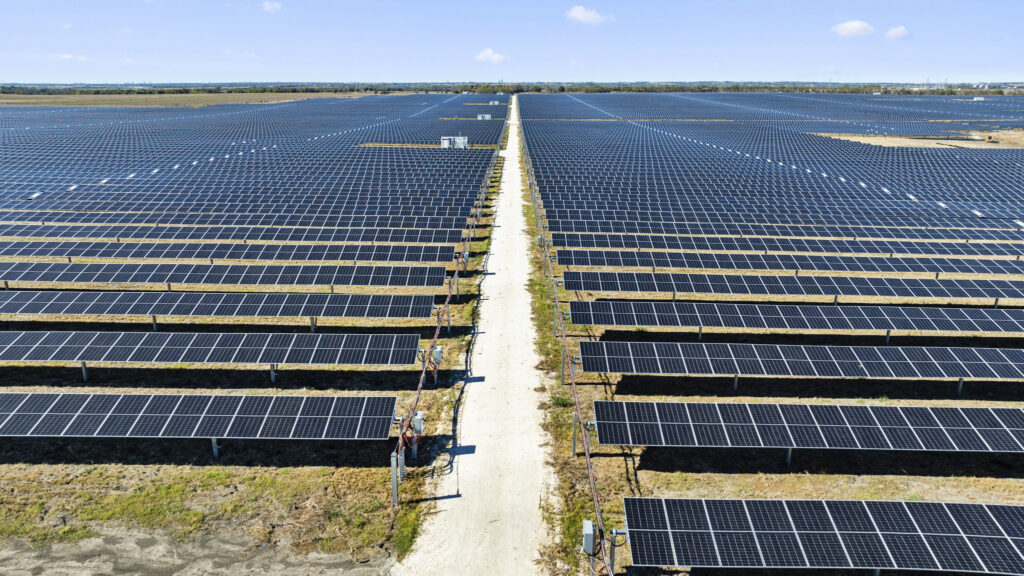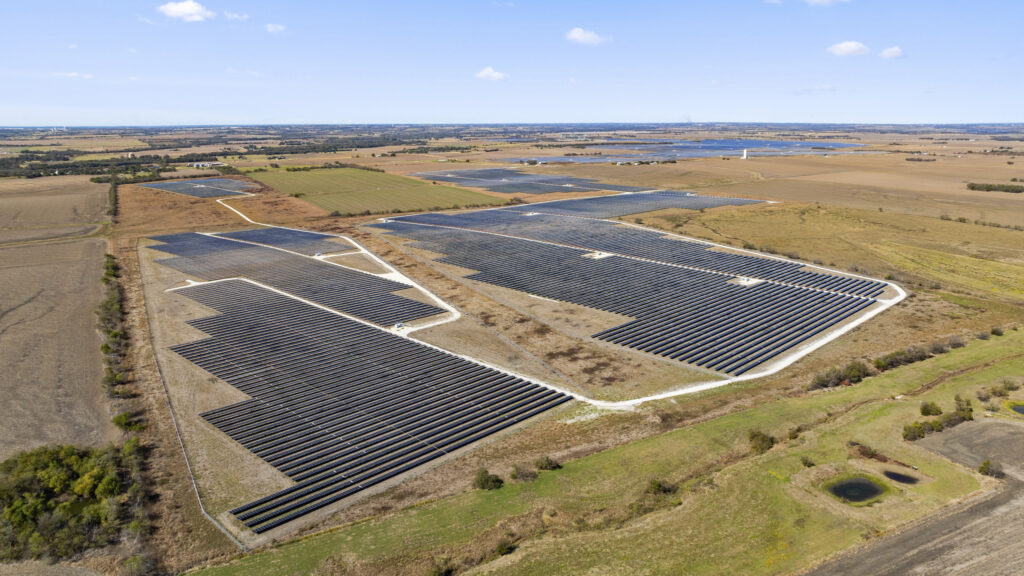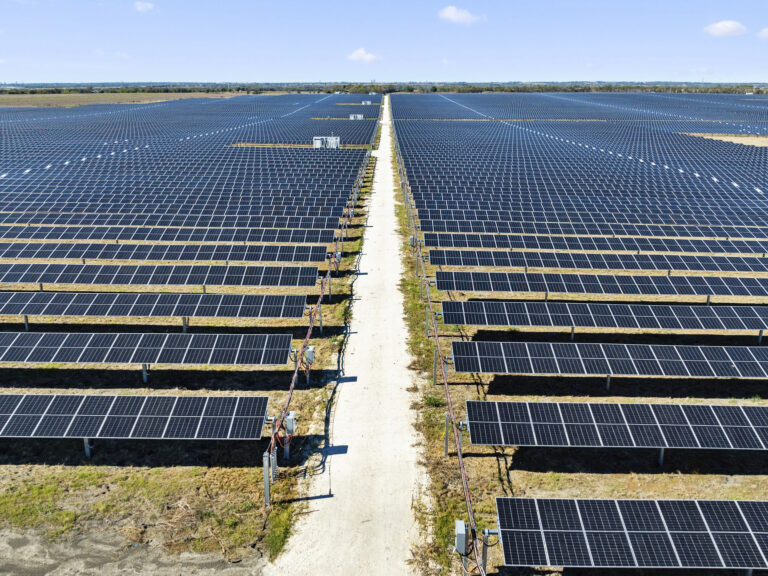Consortium for Climate Solutions FAQ: Harvard and Partners Collaborate on Renewable Energy Consortium
NewsHarvard announced the formation of the Consortium for Climate Solutions (the Consortium), a first-of-its-kind renewable energy collaboration of higher education, healthcare, and cultural institutions, as well as state and local government entities, led by Harvard, Mass General Brigham (MGB), and the Massachusetts Institute of Technology (MIT). Learn more about the Consortium through our FAQ.

What is the Consortium for Climate Solutions?
The Consortium for Climate Solutions is a unique collaboration between higher education institutions, healthcare systems, a municipality and nonprofit cultural organizations in Massachusetts, which are dedicated to advancing joint climate goals through investment in the development of new renewable energy projects.
Harvard, Mass General Brigham, and MIT serve as the project anchors, procuring the largest volume of energy through the aggregation. PowerOptions was brought in and presented the opportunity to its members, engaging the City of Cambridge, Beth Israel Lahey Health, Boston Children’s Hospital, Dana-Farber Cancer Institute, Tufts University, and the Mass Convention Center Authority, enabling them to collectively advance their climate goals. PowerOptions also serves as an intermediary buyer on behalf of the Museum of Fine Arts and GBH, providing them the opportunity to participate with smaller purchases, supported by the project’s anchor participants. Apex Clean Energy is the project developer and owner. 3Degrees facilitated the aggregation on behalf of the Consortium.
With which renewable energy projects did Consortium for Climate Solutions members execute a virtual power purchasing agreement (VPPA)?
To advance collective climate goals, the Consortium for Climate Solutions members will procure over 1.3 million megawatt-hours (MWh)/year from two renewable energy projects, a solar array in Texas and a wind farm in North Dakota. Big Elm Solar, a 200 MW solar energy project in Bell County, Texas, recently came online and will produce an estimated 500,000 MWh/year. Bowman Wind, a 208 MW wind energy project in Bowman County, North Dakota, will produce an estimated 860,000 MWh/year and is expected to come online in 2026. Both projects will be developed, constructed, owned, and operated by Apex Clean Energy.

What is the anticipated impact?
The 1.3 million MWh/year of clean electricity generated on behalf of the Consortium buyers by the two projects will avoid the release of over 920,000 metric tons of carbon dioxide equivalent (CO2e) into the atmosphere. The renewable energy from these projects is equivalent to powering approximately 130,000 homes per year. Beyond generating tangible environmental benefits, including the contribution of approximately $400,000 to regional conservation efforts, Bowman and Big Elm will inject significant economic benefits to their local and state economies. Collectively, the two will create approximately $64 million in tax revenue for their communities, 750 jobs during construction, and a new and long-term source of income for local farmers and landowners, totaling $100 million.
How does this support Harvard’s Climate Goals?
A faculty-led Climate Change Task Force recommended in 2018 that Harvard set a goal to be Fossil Fuel-Free by 2050, recognizing it would take many years to eliminate fossil fuel emissions from our own district energy, buildings, and vehicles. Yet, as Harvard works to decarbonize its campus, the Task Force felt that Harvard has an urgent responsibility to help cut global greenhouse gases (GHG) emissions and air pollution from fossil fuel use today. They recommended the short-term objective of Fossil Fuel-Neutral by 2026 as a bridging strategy to reach the priority goal to be Fossil Fuel-Free by 2050.
To achieve these goals, Harvard is procuring projects that zero out GHG emissions and the health impacts of fossil fuels, such as those caused by air pollution, to create positive benefits for human health, social equity, and ecosystems. Through the Consortium, Harvard signed VPPAs for the development of new renewable electricity projects in grids where they will have the greatest impacts through health benefits and reduction of GHG emissions.
What is the concept of a renewable energy aggregation? A renewable energy aggregation consists of a group of renewable energy buyers leveraging their collective electricity needs to secure long-term renewable power purchase agreements at a volume larger than what they could efficiently procure independently. Renewable energy aggregations such as this one provide market access and competitive terms to buyers who otherwise would not be able to purchase smaller volumes at such competitive terms on their own. The Consortium for Climate Solutions is creating a replicable model that other businesses and institutions can use to advance the development of renewable energy projects and accelerate climate action.
What is a VPPA? A virtual power purchase agreement, or VPPA, grants energy buyers the right to renewable energy certificates (RECs) generated by a specific project. VPPAs do not involve the physical delivery of electricity. VPPAs are long-term contracts that facilitate renewable energy development, as they help enable projects to be financed. The underlying project itself may not necessarily be in close proximity to a buyer’s electricity consumption.
Harvard, MIT, Mass General form renewable energy collaboration
Harvard announced on Wednesday the formation of the Consortium for Climate Solutions, a first-of-its-kind renewable energy collaboration of higher education, healthcare, and cultural institutions, as well as state and local government entities, led by Harvard, Mass General Brigham (MGB), and the Massachusetts Institute of Technology (MIT).

A Holistic Approach
Understanding the Health Impacts of Fossil Fuels
Focusing on addressing the wider harmful impacts of fossil fuels, rather than only greenhouse gas emissions, enables Harvard to drive progress across climate, equity, and health.

